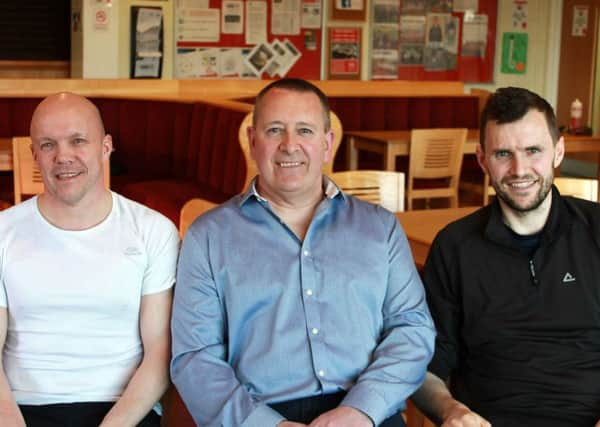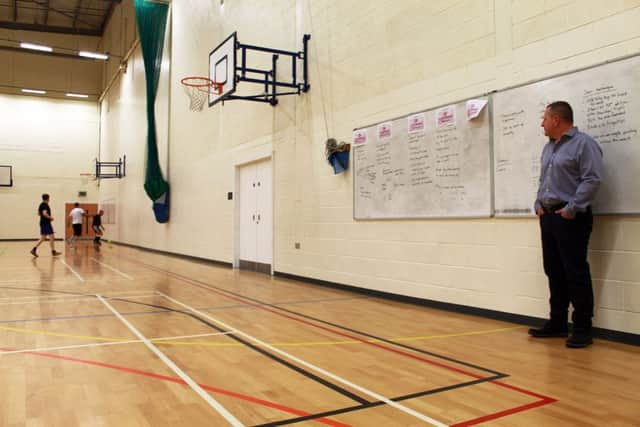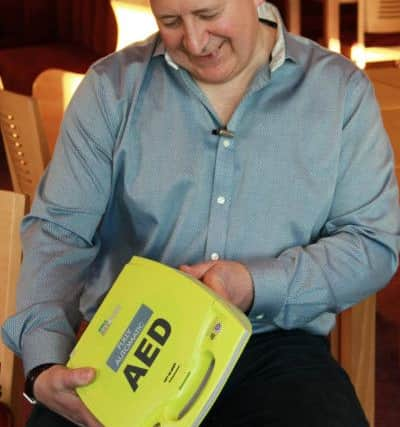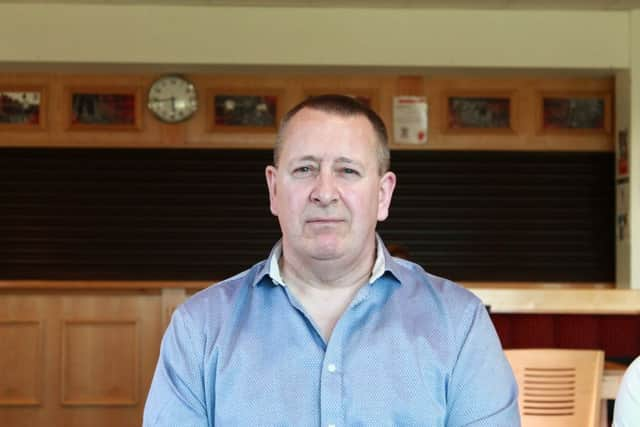Dad-of-two from Elland is reunited with the nurses who saved his life


Paul Bailey, 54, says he owes his life to former five-a-side team-mates Graham Murphy, a senior nurse, and Graham Marvell, a respiratory nurse specialist, who both work at Calderdale Royal Hospital.
Their quick thinking in providing CPR and using the defibrillator at Park Lane Academy sports hall - which had only been installed three weeks previously - saved Paul’s life when the incident happened at around 6.30pm on January 16.
Advertisement
Hide AdAdvertisement
Hide Ad“I’d just scored, done a bit of chasing around and felt a bit dizzy, so I said I’d go in goal for the last few minutes,” said Paul, who had been playing five-a-side on and off for 20 years.


“I got down on the floor thinking I was going to faint, and then it was goodnight Vienna.
“The last thing I remember is my last breath feeling quite tight, but there was no pain. It wasn’t like a heart attack.
“The survival rate outside of hospital is about six per cent.”
Advertisement
Hide AdAdvertisement
Hide AdPaul says he owes his life to the two Graham’s “without a doubt”.


“It wouldn’t have been such a positive outcome if they weren’t there,” he said.
“Hopefully it raises awareness of it. Don’t just stand back, have a go because you can save someone’s life.
“Use the units if they are there. People are scared to use them but they are automatic, they tell you what to do.”
Advertisement
Hide AdAdvertisement
Hide AdPaul, who says he was unconscious for around 10 minutes, spent 10 days in hospital and has an ICD unit fitted in his chest, which sends electrical pulses to regulate abnormal heart rhythms.


“There a Whatsapp group for the lads that play and they were ruthless, as you can imagine, asking for their money back for ruining the game!” Paul added.
“But they’ve been great, coming to see me in hospital and asking how I’m getting on.
“A couple of wires go into my heart so if they get damaged it can send misleading readings.
Advertisement
Hide AdAdvertisement
Hide Ad“So it’ll be six months before I can do too much, and even then it will be light stuff like golf or swimming. You have to be careful.”
Dr Andrew Lockey, Resuscitation Council (UK) Vice-President and Calderdale Royal Hospital Consultant in Emergency Medicine, said “Paul’s story emphasises the importance, not only of swift onset CPR, but also having the awareness to ask for - and use - a public access defibrillator.
“By putting these principles into action, Paul was awake and talking even before the ambulance arrived. By having a defibrillator available, Park Lane Academy has also contributed to this success.”
In the UK there are over 30,000 cardiac arrests a year outside of hospital where the emergency medical services attempt to resuscitate the victim.
Advertisement
Hide AdAdvertisement
Hide AdFewer than 1 in 10 people will survive. The chance of survival from out-of-hospital cardiac arrest can be increased significantly by the immediate provision of bystander CPR and defibrillation within 3–5 minutes can produce survival rates as high as 50 per cent – 70 per cent.